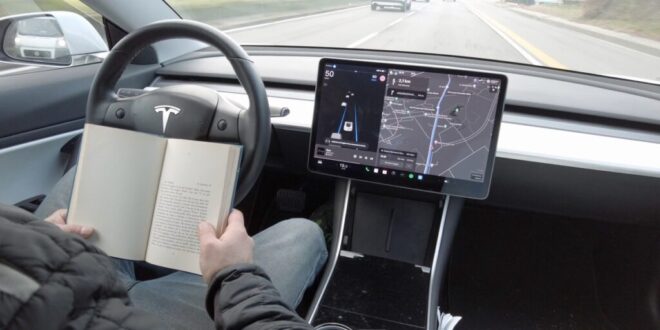A Florida jury delivered an historic verdict that ordered Tesla to pay a $243 million fine in damages for a fatal accident in 2019 that involved its Autopilot system.
The ruling could force governments and auto manufacturers to rethink their legal frameworks for autonomous driving technologies.
On April 25, 2019 in Key Largo (Florida), George McGee was driving at 62mph and ran a stop-sign. He crashed into a Chevrolet Tahoe that was parked. Benavides and Angulo, who were standing next to the vehicle at the time of the accident, died instantly. Angulo suffered a traumatic head injury, fractured bones and a lasting psychological trauma. Benavides Leon died instantly. McGee may have admitted that he reached for his phone when it fell, but the jury determined that Tesla’s Autopilot is to blame because it was activated at the time of the accident and did not warn or brake.
The Miami Federal Court awarded $129 millions in compensatory damage, of which Tesla was responsible for 33 percent ($42.6million), as well as $200 million in punitive compensation to punish Tesla’s reckless conduct. Plaintiffs’ lawyer argued that Tesla designed Autopilot for highways with controlled access, but deliberately did not restrict drivers from using the system elsewhere. This misled drivers by exaggerated claims in marketing. Schreiber claimed that the jury decision “justiced Naibel’s tragic loss and Dillon’s long-lasting injuries.”
The $243M Tesla Autopilot Fine calls into question the definition of “safe”.
Tesla, which intends to appeal the verdict, has called it “wrong”, and a setback in automotive safety. They insist that “no vehicle today or in 2019 could have prevented this accident.” The company claimed that McGee had been at fault, and stressed the need for constant driver oversight. Tesla has been given a big chunk of responsibility by the jury, but it is not surprising. Its marketing and limitations are questioned, as well as the company’s claims that Autopilot was safer than a human driver.
This first trial involving an Autopilot-related third-party death sets a precedent in Tesla’s legal battles. The court ruling is expected to set a precedent, as there are about 12 similar lawsuits that are pending. This could lead to more litigation and increase settlement costs.
The ruling is a crucial one for Tesla. Its shares have fallen by 25 percent in 2025. Musk is trying to expand Tesla Robotaxi’s business, while relying heavily on an advanced version its driver-assistance technology. The verdict, however, challenges the marketing definition of the word “safe”. Tesla’s $1 Trillion market value is tied to its AI, robotics and autonomous vehicles ambitions. This verdict may complicate Tesla’s efforts to win investors and regulators.
Tesla’s Autopilot fine raises questions in Europe
There are still doubts about the safety of autonomous vehicles around the globe. Florida’s verdict comes as Europe examines a patchwork regulation for autonomous vehicles. This has significant implications for automakers. Due to the lack of specific legal frameworks in countries such as Italy, Poland and Greece, advanced driver-assistance vehicles above Level 2 are not allowed on public roads.
As seen in the UK’s Automated Vehicles Act of 2030 and France’s 2022 regulations, countries like the United Kingdom, Sweden and Switzerland are more permissive with their 2021 Autonomous Driving Act, which allows Level 3 systems such as Mercedes-Benz’s Drive Pilot on autobahns and Level 4 vehicles in other areas. Germany, the pioneer of autonomous driving, has a much more permissive 2021 Autonomous Driving Act that allows Level 3 systems such as Mercedes-Benz Drive Pilot on autobahns, and Level 4 vehicles elsewhere. This sets a standard for Tesla’s Full Self-Driving Rollout in 2025. One alarming trend is emerging among German Tesla drivers. Tesla Autopilot requires that drivers keep both hands on the wheel at all time. Many drivers are tying two bottles of water to either side of the steering to fool the computer onboard into thinking the driver is still paying attention to the road.
 Costa News Spain Breaking News | English News in Spain.
Costa News Spain Breaking News | English News in Spain.






